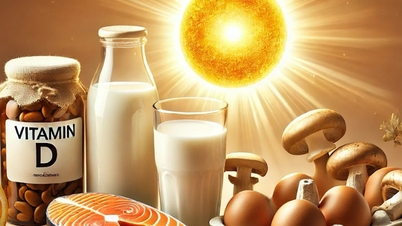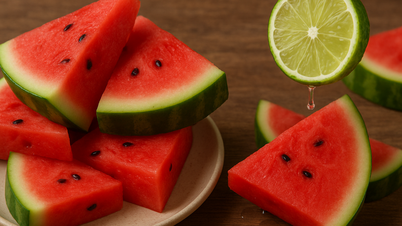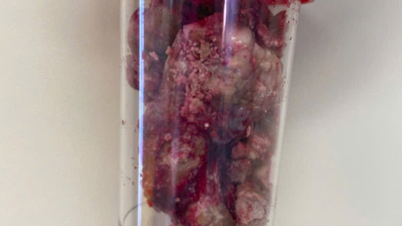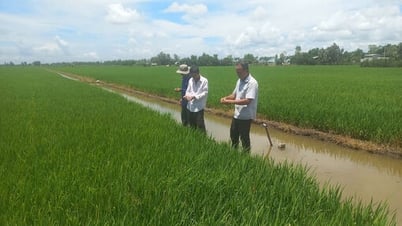Middle-aged women need to increase calcium and vitamin D intake to keep bones and joints supple; cut calories to avoid weight gain and maintain a suitable weight.
Menopause is an important period of physical and mental transition. To cope with the changes in the body, in addition to exercising and getting enough sleep, women need to pay attention to their diet.
Maintaining a balanced diet, rich in fruits, vegetables, whole grains, healthy sources of protein, and calcium can support health during this period. In addition, some nutritional changes can also bring benefits.
Eat less calories
As women age, muscle mass decreases and metabolism slows, and if calorie intake is not reduced, they are more likely to gain weight. However, those who increase their exercise and maintain muscle-building exercises may not need to cut their daily calorie intake.
Increase calcium intake
In addition to helping keep bones and teeth healthy, calcium is also involved in muscle and nerve function and aids in blood clotting. A lack of calcium can lead to osteoporosis, especially as you age.
Decreased estrogen levels during menopause also increase the risk of osteoporosis, so women need to supplement more calcium. The recommended dose is about 1,000 mg per day, women over 50 need 1,200 mg. Dairy products, green leafy vegetables, some types of fish, nuts... are rich in calcium.

Balanced nutrition improves middle-aged health. Photo: Freepik
Eat less iron
The body needs iron to make healthy red blood cells, which carry oxygen to the organs. People with iron deficiency often feel weak and tired.
Women need about 18 mg of iron per day. However, middle-aged women who do not lose blood through monthly menstruation only need about 8 mg per day. Foods that provide this nutrient include red meat, oysters, organ meats, beans, nuts, and green leafy vegetables.
Boost vitamin D
Vitamin D is needed for calcium absorption and utilization. Increased calcium intake during menopause and perimenopause also increases the need for vitamin D.
The body gets this vitamin from salmon, egg yolks, some mushrooms and fortified foods such as milk, cereals or sunbathing. People with little exposure to sunlight need about 200 IU of vitamin D per day, increasing to 400 IU from age 50.
Eat more fiber
Fiber supports a healthy digestive tract and controls cholesterol levels. It also digests slowly, helping you feel full longer, reducing snacking and preventing weight gain in middle age. Foods rich in fiber include beans, fruits, vegetables, whole grains, oatmeal, brown rice, popcorn and nuts.
Vitamin B6 supplement
Vitamin B6 is needed for the metabolism of protein and glucose (sugar), and for the production of hemoglobin, a component of red blood cells that carries oxygen to the organs. This vitamin also maintains the health of the thymus gland, spleen, and supports a healthy immune system.
Women need about 1.3 mg of vitamin B6 per day, and 1.5 mg for people over 50. Food sources include fish, meat, fruits, beans and vegetables.
Bao Bao (According to Very Well Health )
| Readers ask questions about female physiology here for doctors to answer |
Source link




![[Photo] Prime Minister Pham Minh Chinh chairs conference on anti-smuggling, trade fraud, and counterfeit goods](https://vphoto.vietnam.vn/thumb/1200x675/vietnam/resource/IMAGE/2025/5/14/6cd67667e99e4248b7d4f587fd21e37c)

































































































Comment (0)